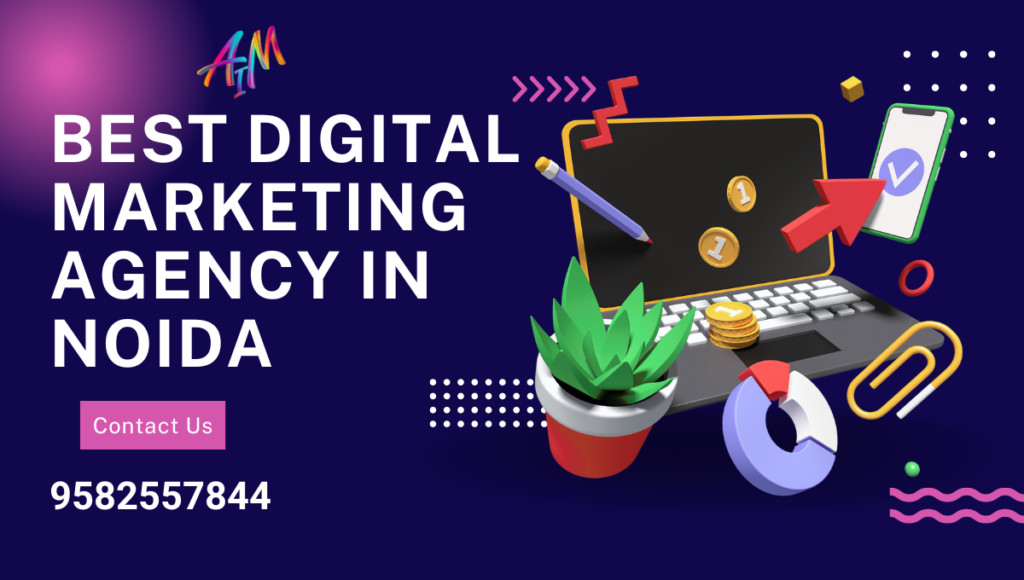Introduction
The world has changed drastically over the last decade, and so has the landscape of career opportunities. As businesses rapidly shift towards digital, in digital marketing has emerged as one of the most promising and dynamic fields. Whether you’re a fresh graduate, someone looking to pivot in their career, or an entrepreneur seeking to promote your business online, in digital marketing offers a multitude of paths. With the right strategy and skills, you can carve out a successful career in this field.
In this comprehensive guide, we’ll explore how to start a career in digital marketing in 2024, the essential skills you’ll need, the biggest opportunities, and the best ways to stay ahead in this ever-evolving industry.
Understanding Digital Marketing: An Overview
Digital marketing encompasses all marketing efforts that use the internet or an electronic device. This includes search engines, social media, email, and other websites to connect with current and prospective customers. in digital marketing landscape is vast, covering several subfields such as SEO (Search Engine Optimization), SEM (Search Engine Marketing), content marketing, social media marketing, email marketing, affiliate marketing, and data analytics.
Why Digital Marketing?
- Demand: With the internet becoming an integral part of daily life, businesses are investing heavily in digital marketing. According to recent studies, global digital ad spending is projected to reach over $600 billion by 2024.
- Flexibility: Digital marketing offers diverse roles, from creative to analytical positions, fitting various personality types and skill sets.
- Scalability: Whether you’re working for a multinational corporation or a startup, digital marketing strategies can be scaled to fit any budget.
- Remote Work: Many in digital marketing roles offer the flexibility to work remotely, which has become increasingly important in a post-pandemic world.
The Skills You Need to Start in Digital Marketing
To thrive in digital marketing, you need a blend of hard and soft skills. Here’s a breakdown of essential skills:
SEO (Search Engine Optimization)
SEO is the practice of optimizing content to rank higher on search engines like Google. This skill is foundational for digital marketers as organic search drives a significant portion of online traffic.
- Keyword Research: Understanding how to find and use the right keywords.
- On-page SEO: Optimizing individual pages to rank higher and earn more relevant traffic.
- Off-page SEO: Building backlinks and improving the authority of your website.
- Technical SEO: Enhancing website structure, speed, and performance to improve rankings.
Content Marketing
Content is at the heart in digital marketing. This includes blogs, articles, videos, podcasts, and infographics. Content marketing involves creating and distributing valuable, relevant, and consistent content to attract and retain a clearly defined audience.
- Copywriting: Writing persuasive and engaging content that drives action.
- Storytelling: Crafting compelling narratives that resonate with your audience.
- Content Strategy: Planning and executing content initiatives that align with business goals.
Social Media Marketing
Social media platforms are powerful tools for reaching and engaging with your audience. Social media marketing involves creating and sharing content on social media networks to achieve your marketing and branding goals.
- Platform Proficiency: Understanding the nuances of platforms like Facebook, Instagram, LinkedIn, Twitter, and TikTok.
- Engagement Strategies: Developing methods to interact with your audience and foster community.
- Paid Advertising: Leveraging paid social ads to expand your reach.
Data Analytics
Data drives decisions in digital marketing. Understanding how to analyze and interpret data is crucial for optimizing campaigns and measuring success.
- Google Analytics: A must-know tool for tracking and reporting website traffic.
- Social Media Analytics: Understanding metrics like engagement rate, reach, and impressions.
- A/B Testing: Conducting experiments to optimize conversion rates and user experience.
Email Marketing
Email marketing is one of the most effective forms of direct marketing. It involves sending personalized emails to prospects and customers to build relationships and drive sales.
- Email Copywriting: Crafting emails that capture attention and drive action.
- List Management: Growing and segmenting your email list to target the right audience.
- Automation: Setting up automated campaigns that nurture leads through the sales funnel.
PPC (Pay-Per-Click) Advertising
PPC advertising involves paying for ads that appear on search engines and social media platforms. It’s a fast way to drive traffic and conversions but requires a solid understanding of budgeting and targeting.
- Google Ads: Mastering this tool to create and manage effective PPC campaigns.
- Bid Strategies: Understanding different bidding methods to optimize ad spend.
- Ad Copywriting: Writing compelling ads that convert clicks into customers.
Communication and Collaboration
Beyond technical skills, digital marketers must be adept at communicating and collaborating with team members, clients, and other stakeholders.
- Presentation Skills: Effectively communicating ideas and strategies to clients or team members.
- Project Management: Managing multiple campaigns and tasks simultaneously.
- Collaboration Tools: Using tools like Slack, Asana, or Trello to keep teams aligned.
Step-by-Step Guide to Starting Your Career in Digital Marketing
Step 1: Self-Education
The first step to starting your career in digital marketing is to educate yourself. There are numerous resources available online, many of them free.
- Online Courses: Platforms like Coursera, Udemy, and HubSpot Academy offer comprehensive courses in digital marketing. Google also offers free certification in Google Analytics and Google Ads.
- Blogs and Podcasts: Stay updated with industry trends by following blogs like Moz, Neil Patel, and HubSpot, and listening to podcasts like “Marketing School” and “The Digital Marketing Podcast.”
- Books: Some foundational books include “Digital Marketing for Dummies,” “Made to Stick” by Chip Heath & Dan Heath, and “Contagious: How to Build Word of Mouth in the Digital Age” by Jonah Berger.
Step 2: Gain Practical Experience
Education alone won’t suffice. You need hands-on experience to apply what you’ve learned and build your portfolio.
- Internships: Look for internships with in digital marketing agencies or companies. This will give you real-world experience and an opportunity to learn from professionals.
- Freelancing: Start taking on small projects for local businesses, friends, or family. Platforms like Upwork, Freelancer, and Fiverr can help you find clients.
- Personal Projects: Create your own blog or social media accounts and start applying in digital marketing techniques. This not only helps you practice but also serves as a showcase of your skills.
Step 3: Build a Portfolio
Your portfolio is your gateway to better job opportunities. It should showcase your best work and demonstrate your skills.
- Case Studies: Include detailed case studies of campaigns you’ve worked on, highlighting the strategies you used and the results you achieved.
- Diverse Samples: Show a variety of work, including blog posts, social media campaigns, SEO audits, email newsletters, and ad copies.
- Personal Branding: Create a professional website to host your portfolio, and optimize it using SEO techniques. LinkedIn is also a powerful platform for showcasing your skills and connecting with industry professionals.
Step 4: Network with Industry Professionals
Networking is key to advancing in digital marketing. The more people you know in the industry, the more opportunities you’ll encounter.
- LinkedIn: Engage with content, join groups, and connect with professionals in digital marketing. Don’t just add people—build relationships.
- Industry Events: Attend in digital marketing conferences, workshops, and webinars. These events offer valuable learning opportunities and a chance to meet potential employers or collaborators.
- Online Communities: Join forums like Reddit’s r/digital_marketing or specialized Slack groups. Participate in discussions and share your knowledge.
Step 5: Stay Updated with Industry Trends
In digital marketing is a rapidly evolving field. Staying updated with the latest trends and technologies is crucial for long-term success.
- Continuous Learning: Regularly take advanced courses and certifications to stay ahead of the curve.
- Experimentation: Don’t be afraid to try new tools, platforms, and strategies. in digital marketing landscape is vast, and what works today may not work tomorrow.
- Read and Follow Thought Leaders: Stay informed by following industry experts on social media, reading their blogs, and participating in discussions.
The Biggest Opportunities in Digital Marketing in 2024
As you embark on your in digital marketing career, it’s important to focus on areas with the most growth potential. Here are some of the biggest opportunities in digital marketing in 2024:
Artificial Intelligence and Automation
Artificial Intelligence (AI) is transforming in digital marketing. From chatbots to personalized content recommendations, AI is enabling marketers to deliver more relevant and timely experiences to customers.
- AI-Powered Tools: Master tools like Jasper, ChatGPT, and HubSpot’s AI features to streamline content creation, customer service, and data analysis.
- Personalization: Use AI to create personalized customer journeys, which can significantly improve conversion rates.
- Automation: Automate repetitive tasks such as email campaigns and social media posting to free up time for strategic planning.
Voice Search Optimization
With the rise of voice-activated assistants like Alexa, Siri, and Google Assistant, voice search is becoming more prevalent. Optimizing for voice search is essential for staying ahead.
Video Marketing
Video continues to dominate in digital marketing, and its importance will only grow in 2024. Short-form videos, live streaming, and interactive content are especially popular.
- YouTube SEO: Optimize your videos for YouTube search by using the right keywords, tags, and descriptions.
- Short-Form Videos: Platforms like TikTok and Instagram Reels are gaining traction. Create engaging, bite-sized content to capture attention.
- Interactive Videos: Use interactive elements like polls, quizzes, and clickable links within your videos to engage viewers.
Advanced Digital Marketing Strategies for Career Growth
As you advance in digital marketing career, it’s essential to move beyond the basics and delve into more advanced strategies. Mastery of these strategies not only enhances your skill set but also positions you as a leader in the field. Below are some advanced in digital marketing strategies that can help propel your career forward.
Advanced SEO Techniques
As search engines become more sophisticated, SEO requires a deeper understanding of both technical aspects and user intent. Advanced SEO techniques involve a comprehensive approach to optimizing your website for both search engines and users.
- Semantic SEO: Search engines like Google are increasingly focused on understanding the intent behind search queries rather than just matching keywords. Semantic SEO involves creating content that comprehensively covers a topic, addressing various aspects of user intent. Tools like Google’s People Also Ask feature can guide you in identifying related queries to include in your content.
- Schema Markup: Implementing schema markup (structured data) on your website can improve how your content appears in search engine results pages (SERPs). Schema markup helps search engines understand the context of your content, leading to rich snippets like review stars, event details, and FAQ sections, which can significantly enhance click-through rates.
- Voice Search Optimization: With the rise of voice-activated devices, optimizing for voice search is critical. Focus on long-tail keywords that mimic natural speech patterns and optimize for featured snippets, as these are often used as answers in voice search queries.
- Link Building: While link building remains a core component of SEO, advanced strategies involve earning high-quality backlinks from authoritative sites in your industry. Guest blogging, influencer outreach, and creating shareable content like infographics and original research can help you acquire valuable backlinks.
Content Marketing Evolution
Content marketing is constantly evolving, and staying ahead requires innovative strategies that go beyond traditional blogging and social media posts.
- Content Repurposing: Maximize the value of your content by repurposing it across different formats and platforms. For example, a blog post can be turned into a video, infographic, podcast episode, or a series of social media posts. This approach not only extends the reach of your content but also caters to different audience preferences.
- Interactive Content: Interactive content, such as quizzes, polls, calculators, and interactive infographics, engages users more effectively than static content. This type of content encourages user participation, increases time spent on your site, and can provide valuable data on user preferences and behaviors.
- Content Personalization: Leveraging data to deliver personalized content experiences can significantly enhance user engagement and conversion rates. Personalization can range from dynamic content that changes based on user behavior to personalized email campaigns that address individual preferences and needs.
- Video Content: Video content continues to dominate the digital space. Invest in high-quality video production and explore various formats, including live streaming, tutorials, product demonstrations, and behind-the-scenes content. Platforms like YouTube, Instagram, and TikTok are essential for reaching audiences through video.
Social Media Marketing Mastery
Social media marketing is more than just posting content regularly. To truly master social media, you need to understand the nuances of each platform and leverage advanced strategies to build a strong online presence.
- Social Media Listening: Social media listening involves monitoring social media platforms for mentions of your brand, competitors, and industry-related keywords. This allows you to gain insights into customer sentiment, identify trends, and respond to feedback in real-time. Tools like Hootsuite, Brandwatch, and Sprout Social can help with social media listening.
- Influencer Marketing: Collaborating with influencers who have a strong following in your niche can amplify your brand’s reach. Rather than focusing solely on follower count, prioritize influencers who align with your brand values and have high engagement rates. Micro-influencers, with smaller but highly engaged audiences, often deliver better ROI than mega-influencers.
- Social Commerce: Social commerce allows users to purchase products directly through social media platforms. Integrate shoppable posts on Instagram and Facebook, and experiment with live shopping events where viewers can buy products in real-time during a live stream. This seamless shopping experience can significantly boost sales and engagement.
- User-Generated Content (UGC): Encourage your audience to create content related to your brand, such as reviews, testimonials, and social media posts. UGC not only builds trust but also provides you with authentic content that resonates with potential customers. Feature UGC on your website, social media channels, and marketing materials.
Advanced PPC and Paid Advertising Strategies
Pay-per-click (PPC) advertising is a cornerstone in digital marketing, and advanced strategies can help you maximize the effectiveness of your campaigns.
- Audience Segmentation: Instead of targeting broad audiences, segment your audience based on factors like demographics, behavior, and interests. Use these segments to create highly targeted ads that resonate with specific groups, leading to higher conversion rates and better ROI.
- Remarketing: Remarketing involves targeting users who have previously interacted with your website or ads but did not convert. By serving these users tailored ads based on their previous behavior, you can re-engage them and guide them further down the sales funnel.
- Dynamic Search Ads: Dynamic search ads automatically generate ad headlines and landing pages based on the content of your website. This is particularly useful for large websites with constantly changing inventory, as it ensures your ads are always relevant and up-to-date.
- A/B Testing and Optimization: Continuous testing and optimization are key to successful PPC campaigns. Conduct A/B tests on ad copy, headlines, images, and landing pages to identify what works best. Use the insights gained from testing to refine your campaigns and improve performance.
Email Marketing Excellence
Email marketing remains one of the most effective in digital marketing channels. Advanced email marketing strategies focus on personalization, automation, and lifecycle marketing.
- Lifecycle Email Campaigns: Design email campaigns that cater to different stages of the customer journey, from lead nurturing and onboarding to retention and re-engagement. Tailor your messaging to address the specific needs and pain points of customers at each stage.
- Advanced Segmentation: Move beyond basic demographic segmentation and use behavioral data to create more refined audience segments. For example, segment your email list based on purchase history, browsing behavior, or engagement level, and send targeted emails that speak directly to each group’s interests.
- Email Automation: Automation allows you to send timely, relevant emails based on user actions or predefined triggers. Set up automated workflows for welcome emails, abandoned cart reminders, post-purchase follow-ups, and re-engagement campaigns. Automation not only saves time but also ensures that your emails reach the right people at the right time.
- Interactive Emails: Incorporate interactive elements like surveys, polls, and quizzes within your emails to increase engagement. Interactive emails provide a more engaging experience for recipients and can help you gather valuable data on customer preferences.
Data-Driven Marketing and Analytics
Data-driven marketing involves making informed decisions based on data analysis rather than intuition. As a digital marketer, the ability to interpret data and use it to optimize campaigns is crucial.
- Customer Data Platforms (CDPs): A CDP aggregates customer data from various sources into a single, unified platform. This allows you to create a comprehensive view of each customer and deliver personalized experiences across all touchpoints. Investing in a CDP can significantly enhance your ability to deliver targeted marketing campaigns.
- Predictive Analytics: Predictive analytics uses historical data, machine learning, and AI to forecast future outcomes. By predicting customer behavior, such as the likelihood of churn or the potential for upselling, you can make proactive marketing decisions that drive better results.
- Attribution Modeling: Attribution modeling helps you understand which marketing channels and touchpoints are contributing to conversions. By analyzing the customer journey, you can allocate your marketing budget more effectively and focus on the channels that deliver the highest ROI.
- Data Visualization: Presenting data in a clear, visual format is essential for making data-driven decisions. Tools like Tableau, Power BI, and Google Data Studio allow you to create interactive dashboards that provide real-time insights into campaign performance.
Navigating the Digital Marketing Job Market
With a comprehensive skill set and advanced strategies under your belt, the next step is to navigate the digital marketing job market. Here’s how you can position yourself for success:
Crafting an Impressive Resume and Cover Letter
Your resume and cover letter are your first chance to make a strong impression on potential employers.
- Tailor Your Resume: Customize your resume for each job application by highlighting the skills and experience that align with the specific role. Use keywords from the job description to increase the chances of passing through Applicant Tracking Systems (ATS).
- Quantify Your Achievements: Whenever possible, include specific metrics and results to demonstrate your impact. For example, instead of saying “Managed social media accounts,” say “Increased social media engagement by 35% over six months.”
- Showcase Your Portfolio: Include a link to your portfolio in your resume and cover letter. Your portfolio should highlight your best work, including case studies, writing samples, and campaign results.
Acing the Interview
Interviews are your opportunity to demonstrate your expertise and fit for the role.
- Prepare for Common Questions: Familiarize yourself with common in digital marketing interview questions, such as “How do you stay updated with industry trends?” and “Can you describe a successful campaign you’ve worked on?”
- Showcase Your Problem-Solving Skills: Employers value candidates who can think critically and solve problems. Be prepared to discuss challenges you’ve faced in past roles and how you overcame them.
- Ask Insightful Questions: Show your interest in the role and the company by asking thoughtful questions. For example, “What are the biggest challenges your marketing team is currently facing?” or “How do you measure success in this role?”
Building a Strong Personal Brand
In the competitive in digital marketing field, a strong personal brand can set you apart from other candidates.
- Create Content: Establish yourself as an expert by creating and sharing valuable content on platforms like LinkedIn, Medium, or your own blog. Writing about industry trends, sharing case studies, or offering tips can help you build credibility and attract job opportunities.
- Engage with the Community: Participate in online communities, industry forums, and social media groups related in digital marketing. Engaging in discussions, sharing insights, and networking with professionals can open doors to new opportunities.
- Develop a Professional Online Presence: Ensure your LinkedIn profile is up-to-date and reflects your expertise. Use a professional photo, write a compelling summary, and include relevant keywords to increase your visibility to recruiters.
Continuing Education and Professional Development
Digital marketing is a rapidly evolving field, and continuous learning is essential for long-term success. Here are some ways to stay ahead of the curve:
Online Courses and Certifications
Invest in online courses and certifications to deepen your knowledge and demonstrate your commitment to professional development.
- Google Analytics Certification: Mastering Google Analytics is crucial for any digital marketer. The Google Analytics certification is a valuable credential that showcases your ability to analyze data and make informed marketing decisions.
- Facebook Blueprint: Facebook’s Blueprint certification offers a range of courses on topics like Facebook advertising, Instagram marketing, and Messenger marketing. Completing these courses can help you become proficient in social media marketing.
- HubSpot Academy: HubSpot Academy offers free courses and certifications in inbound marketing, content marketing, email marketing, and more. These courses are ideal for expanding your skills and staying updated with the latest trends.
Attending Conferences and Webinars
Industry conferences and webinars are excellent opportunities to learn from experts, network with peers, and stay informed about the latest trends.
- Digital Marketing Conferences: Attend conferences like Content Marketing World, Social Media Marketing World, and MozCon to gain insights from industry leaders and network with fellow professionals.
- Webinars and Online Events: Many organizations offer free or low-cost webinars on various digital marketing topics. Sign up for webinars hosted by industry leaders like Neil Patel, SEMrush, and HubSpot to stay updated with the latest strategies.
Reading Industry Blogs and Publications
Stay informed by regularly reading industry blogs, publications, and newsletters.
- Top Industry Blogs: Follow blogs like Moz, Search Engine Journal, Neil Patel, and HubSpot for insights on SEO, content marketing, and digital advertising.
- Newsletters: Subscribe to newsletters from leading industry publications like MarketingProfs, The Drum, and Digiday to receive updates on the latest trends and news.
Networking and Joining Professional Associations
Networking is a critical component of career growth in digital marketing. Building relationships with industry professionals can lead to job opportunities, collaborations, and mentorship.
- Join Professional Associations: Consider joining professional associations like the American Marketing Association (AMA) or the Digital Marketing Association (DMA). These organizations offer networking events, educational resources, and career development opportunities.
- Participate in Online Communities: Join LinkedIn groups, Facebook groups, and Reddit communities related in digital marketing. Engage in discussions, share your expertise, and connect with professionals who share your interests.
Conclusion
Building a successful career in digital marketing in 2024 requires a combination of foundational knowledge, advanced strategies, and continuous professional development. The digital landscape is dynamic, and staying ahead of the curve is essential for long-term success.
By mastering advanced in marketing techniques, navigating the job market with confidence, and committing to lifelong learning, you can position yourself as a leader in the industry. The opportunities in digital marketing are vast, and with the right approach, you can build a fulfilling and impactful career in this exciting field.
Remember, the key to success in digital marketing is adaptability, creativity, and a passion for innovation. Embrace the challenges, seize the opportunities, and let your career in digital marketing thrive.




